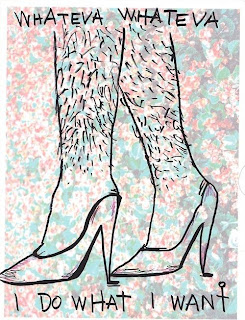I've
been wanting to write a new post for a very long while. I even
started to write various posts about different things. I'll try to
see if I can merge everything into a single entry coherently.
First
of all, some background.
During
one
month in Catalonia (September
14th
- October 16th)
I
re-encountered, met, got to know and —in general— loved a
lot of people while
living in 4 different places. 1)
Mas
Franch, 2)
S.
& H. F.'s place in Barcelona,
Mas Franch, Barcelona,
3)
Can
Masdeu, Barcelona,
4)
Kosturica and one last stop in
Barcelona.
I also visited other 2 projects (J. C.'s place + Can Manent),
attended meetings of Permacultura Barcelona, the food forest group,
and so on. Coming
back to Italy I had the opportunity to meet old friends and to
straighten
some old scar tissue with L. B. in a very civilized way. The other
night
while
writing this post
I've also been listening to the EP of the Collective she's part of. My
favourite song is n. 4, Calexico-ey and melancholic.
And
now this new adventure: starting from last Monday I'm living for two
months with
two good friends
in a very small, beautiful Italian town working in exchange for food
and accommodation.
Very
many things happened since I went to Barcelona in September —Permaculture Teachers' Training, European
Permaculture Teachers' partnership, various
bio constructions, meetings and parties and chats—
and I had a lot of material for thought. During
this whole period (in
Catalonia) there
was a lot of people care involved. I
thought about our
bodies
and our “natural” shyness
of showing them and
how I overcame it. I already talked about how I find the prohibition for women to show
their nipples
absolutely pointless and extremely sexist. It's true,
maybe girls started to cover their
tits
to make them accessible only to those who would provide for them,
thus having another arrow in their quiver since
the control of sex was almost their only weapon,
but society and bigotry took over and even nowadays this prohibition
stands. Same thing for the “necessity” women have to shave or the idea that they should be skinny and Barbie-like. I saw many girls going against these prohibitions lately —at least in "safe" environments— and I couldn't be happier. Going back to myself, I never swam, sun bathed nor took a shower naked before, at least not in broad daylight, but it seemed just natural to do so, due to the relaxed circumstances and to the care everybody would take of everyone else. Care of people.
Thinking
about bodies made me realize that our body —like any other
organism— works because zillions of cells cooperate to make it work
properly.
I
also thought a lot about relationships —I've been reading The Ethical Slut,
a very interesting book about “Polyamory, Open Relationships &
Other Adventures”— and
I realized
that every successful and/or pleasurable activity is the result of a
cooperation. Organisms.
Relationships. Life.
It's been happening in my life too.
Since last April I've been living mostly in communities. Unlike most
of the examples I heard about, these communities worked perfectly,
especially when a good care of people was involved. The only problem
I encountered in
the relationships between all the people in these communities —between
M. and various other people while I was at CMD— was handled beautifully by the rest of
that
community (which
by the way was made up of two communities).
I
feel that cooperation and the lack of competition is crucial towards
any successful process. While
staying at Valldaura —where
I did an internship between last April and July— the first open discussion between us —the
interns— and them —the organization— happened when N. D. —chief
of the project— suggested that the 13 of us had to make a design
for a vegetable garden and she would then decide which one was the
best one. But she
said
that this wasn't
a contest. I
disagreed firmly and said it clearly and saw that almost all the
other interns agreed with me. Why would anyone want to show that
they're the best —thus creating frictions and a competitive
environment— when they can share ideas with somebody else?
The
most complex communities in nature work because there is a great
cooperation between
the various subjects which work together towards a
common goal: the well being of the whole community. In bees, ants,
termites, wasps colonies every single element is as important as the
others and none of them is more important than the others. Not even
the queen. Her
duty is to be laying eggs tirelessly, but if we
talk about bees, if the queen
dies the workers feed some of the larvae
with royal jelly and create their new queen. These macro-communities
work exactly like a single organism where the insects can be compared
to cells and every one of them cooperate with the others to
make the community work. As a matter of fact these types of colonies are commonly called "superorganisms". Apparently cooperation is the key to success and ants are a clear example. According to scientific studies there are around 10,000,000,000,000,000 individual ants alive on Earth at any given time, weighing together more than the entire human race!
 |
| Termite Colony |
Coming
back to us human, the one single activity where
people care is involved and a good cooperation of bodies,
relationships and —why not?— life is needed for things to work
well, is sex. But this would be another very long story. Maybe some
other time. :)










































